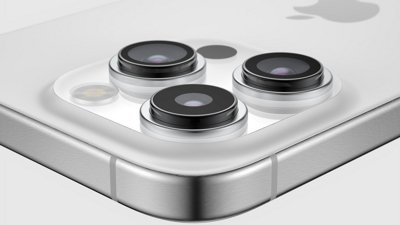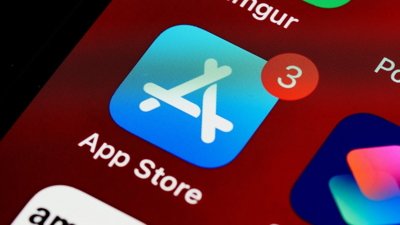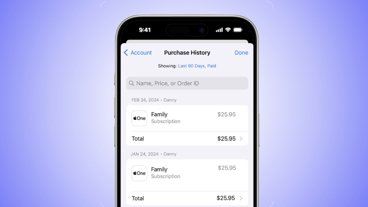Pre contacts, calendar items, memos and tasks are supposed to be backed up by automatic sync to Palm's cloud servers, enabling users to swap out faulty hardware without any need to back up their data to their own local computer. Palm refers to this online data backup as a Profile, but the system isn't working for an increasing number of users who report losing all or most of their information, according to a report by PreCentral.
The problem recalls the data catastrophe suffered by Microsoft's Danger group, which resulted in a widespread loss of personal information for T-Mobile Sidekick users. Microsoft was able to recover some of the data after Sun and Oracle experts stepped in to help recover the information, but the salvaged data took over a month to restore because the company didn't have adequate backups.
Earlier this year, Nokia also experienced a cloud services failure with Ovi, its mobile online service then operating in a public beta, after a server accident resulted in database problems. Despite having "regular backups," the company said "we were not able to set it right" and had to revert to an older database performed three weeks earlier at its previous hosting center.
"We’re sorry for the lost contacts in your phonebooks," Nokia's Ovi Contacts project manager Kristian Luoma posted to the company's blog. "We’re sorry that the profile pictures you love, and we love too are gone. Nothing can make this right, we know, but we’re hoping that you can forgive us and give another chance to give you good service."
Like Microsoft's Danger/Sidekick platform, Palm's new WebOS devices are not designed to sync with a desktop PC, so users can't back up their own phones without buying third party software to do so. Apple has suffered similar data loss issues in its rollout of MobileMe, its own cloud backup and push sync data service, but iPhone and iPod touch users are able to sync their devices to iTunes locally, enabling them to backup and restore their personal data independently of any problems that many occur in the cloud.
The Cloud or Bust
Despite the widespread troubles plaguing devices that are only designed to sync with the cloud (and which make it complicated, difficult or even impossible for users to perform their own backups locally), vendors are still working to push mobile devices tied to cloud-only sync services.
Last year, Android's Product Marketing Director Marc Vanlerberghe, wrote, "We envisioned a world where your various computers and phones would always be in sync without needing discipline, USB cables, Bluetooth, and synchronization software." The result was that Google's Android is designed to sync user data automatically to Google's cloud service in the background.
If Google were to lose any Android data on its end (Google's Gmail and other services have gone offline and/or lost users' messages several times before) Android phones would dutifully sync the loss back to the handset without the user even realizing it happened until the data was gone, with no way for the user to subsequently restore the data.
Microsoft recently released its own My Phone service for Windows Mobile to similarly back up users' entire phone to the company's cloud servers rather than to the their own PC. Most Windows Mobile phones are designed to sync with a local Exchange Server, which many of Microsoft's remaining users might prefer over the company's own cloud service, given its track record with Danger.
Unlike the iPhone 3GS, the Verizon/Motorola Droid doesn't support the default minimum security policy required by Exchange Server, resulting in many companies refusing to support Android phone sync with their corporate email systems.
With every major phone vendor having experienced serious and significant cloud service failures, more companies might begin recognizing that support for local data sync and backup through a user application like iTunes is not just a good idea, but an essential feature for consumers increasingly wary of trusting their information to a central server on the cloud, particularly services that offer to maintain users' data for free, and which subsequently can't be expected to care that much about restoring lost information once it occurs.
Daniel Eran Dilger is the author of "Snow Leopard Server (Developer Reference)," a new book from Wiley available now.
 Daniel Eran Dilger
Daniel Eran Dilger







-m.jpg)






 Malcolm Owen
Malcolm Owen
 William Gallagher
William Gallagher
 Andrew O'Hara
Andrew O'Hara

 Sponsored Content
Sponsored Content
 Charles Martin
Charles Martin










55 Comments
This isn't good. "Cloud Computing" is supposed to be the future of computers and smart mobiles. If they can't get this reliable, people aren't going to trust the system.
To think that Google's Chrome OS will have ALL your content stored in the Cloud is a little disconcerting right now...
I don't see how anything could wrong with me storing all my personal and confidential data on a cloud owned by a for-profit corp. Nope...none at all.
This isn't good. "Cloud Computing" is supposed to be the future of computers and smart mobiles. If they can't get this reliable, people aren't going to trust the system.
To think that Google's Chrome OS will have ALL your content stored in the Cloud is a little disconcerting right now...
Yeah - if they can't get it right at the very beginning, how will they ever get it right later?!?
This is why Palm wanted to sync with iTunes!
No, but seriously, I really like my Pre. It's not as fast or refined as the iPhone, but I really didn't want to switch to AT&T. Hopefully I won't ever have to deal with the backup/restore issue... \
More proof that Palm is a godawful mess. From one fumble to another.